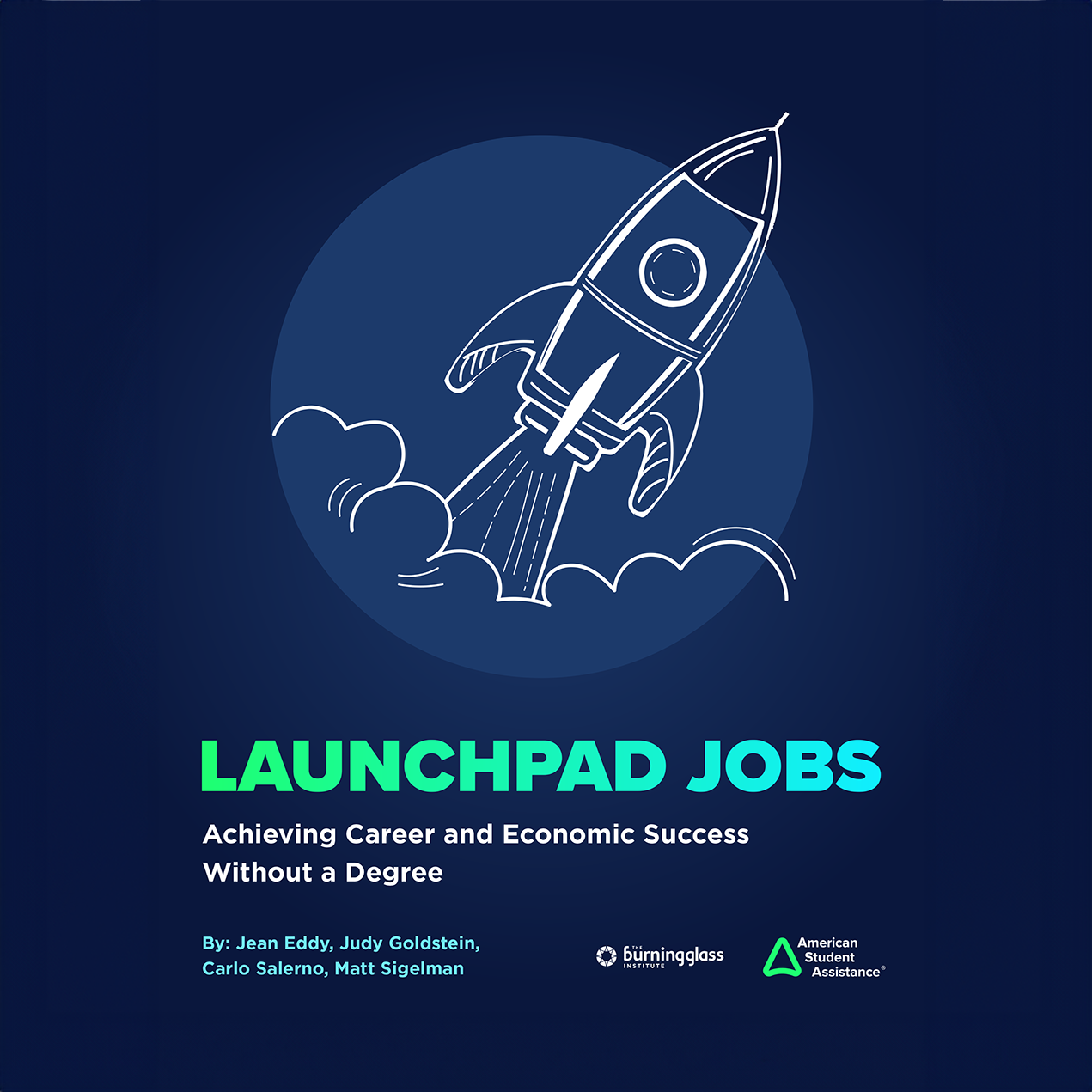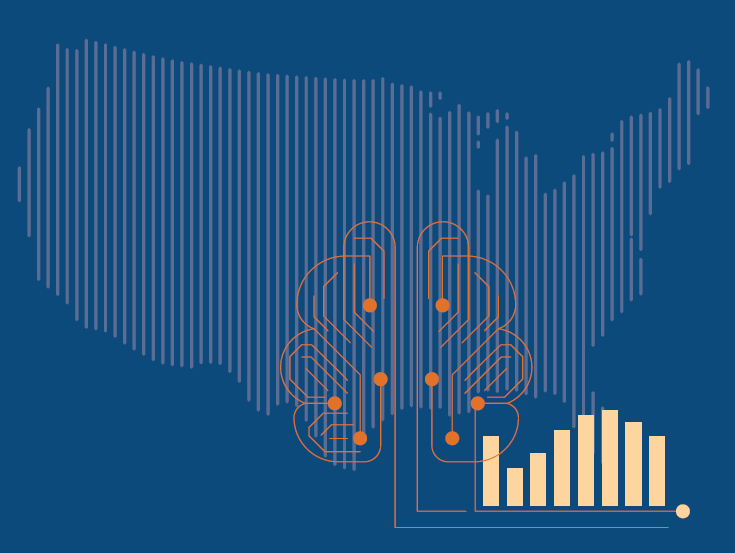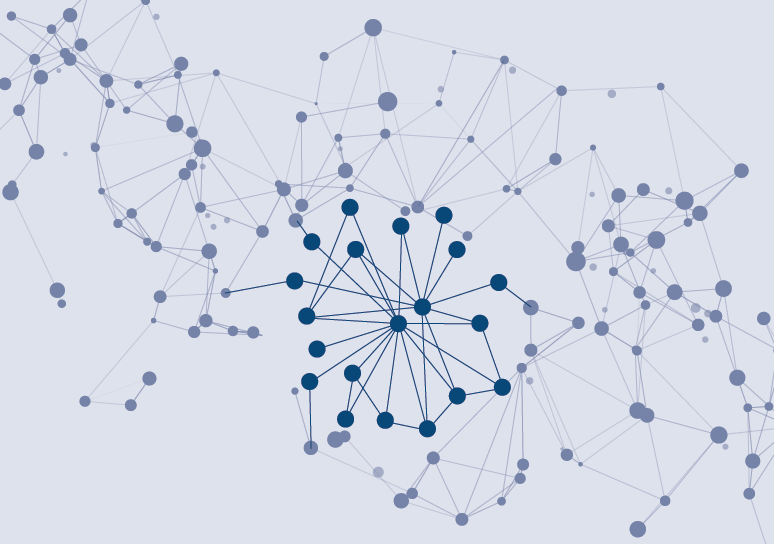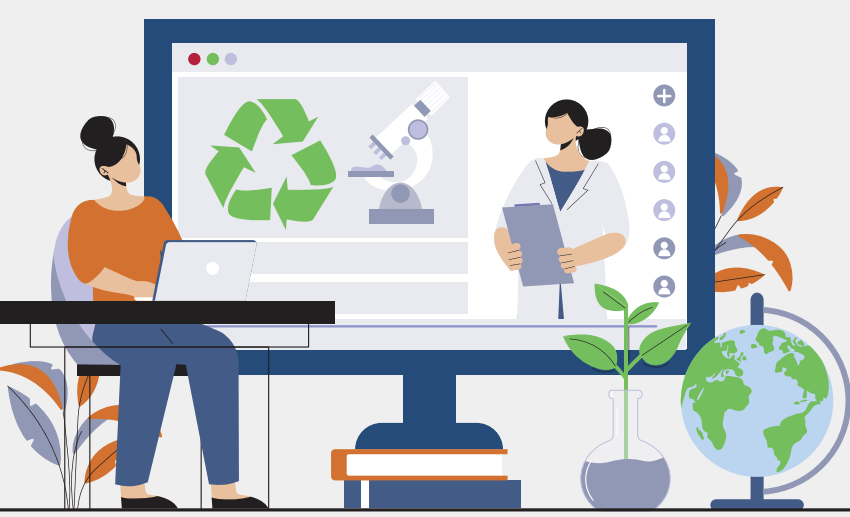Research
Selected research published by the Burning Glass Institute independently or in partnership with other leading workforce innovation and higher education organizations

Mind the Technician Gap: Why the UK Lacks the Skilled Workforce to Deliver Its Industrial Strategy
New research from the Burning Glass Institute, funded by the Gatsby Foundation, reveals a hidden labour crisis at the heart of the UK economy: Britain does not have enough technicians to deliver its own industrial strategy.
The recent Skills White Paper highlights the scale of the challenge, estimating that the UK will need 900,000 additional skilled workers in priority sectors by 2030, with skills-shortage vacancies already accounting for a quarter of all open roles. Our analysis shows the problem is even more acute in technician occupations central to the UK’s industrial strategy, where more than one in three roles already faces severe shortages.
As the government commits to helping more employers invest in workforce development and enabling more young people to secure apprenticeships, our reports underline both the centrality of apprenticeships to the technician pipeline and a major missed opportunity: the failure to draw on underrepresented talent, particularly women and girls. In seven in ten technician occupations with skills shortages (69%), fewer than 5% of workers are women—and in many of the best-paid, highest-demand trades the figure is effectively zero. We propose a target equivalent to a 10-percentage-point increase in female representation in relevant apprenticeships, which would bring nearly 70,000 additional workers into the technician workforce over the next decade.
With the government seeking to expand the technician workforce, our findings also highlight the appeal of these roles: they are among the most AI- and automation-resilient jobs in the economy and offer strong wages, clear progression routes and high retention—alongside sustained employer demand.
If the UK is to deliver its industrial strategy, closing the technician gap must now be treated as a national priority—one in which apprenticeships, and a broader, more inclusive talent pipeline, are essential to success.

From Alignment to Action: Help BGI Drive Skills-First Implementation in the Workforce
The Burning Glass Institute is advancing the Skills-First Workforce Initiative from alignment to active implementation, aiming to embed shared skills standards into the actual infrastructure of the labor market. Building on the creation of taxonomies for 30 high-impact roles, the initiative is now accepting applications for two partnership opportunities designed to integrate these standards into hiring, training, and advancement systems.
The Skills-First Implementation Fellowship provides up to $100,000 in grant funding to "activator" organizations—such as technology platforms and education networks—that can integrate shared taxonomies into live workflows. Alternatively, the Regional Taxonomy Implementation track seeks intermediaries to lead pilot efforts in two U.S. regions, where they will convene local employers to co-develop and validate localized skills frameworks with those employers.
Applications for both opportunities are due January 9, 2026.

Decision Skills in the Workforce
As artificial intelligence reshapes the nature of work, decision-making skills—such as problem solving, risk analysis, and strategic thinking—stand out as one of the most enduring and economically valuable human capabilities.
A new report by the Burning Glass Institute, in partnership with the Alliance for Decision Education, analyzes more than 6.8 million U.S. job postings from 2022-2024 to quantify where and how employers demand and reward decision skills across industries and occupations. The findings show that 41% of postings explicitly reference decision-making skills, with prevalence reaching 68% in computer and mathematical occupations. Employers reward these abilities with substantial wage premiums—up to 23% for skills tied to risk and strategic decision-making.
The research offers the first data-driven evidence base connecting decision-making skills to labor market value, highlighting how these skills evolve with career progression and remain a durable advantage in the age of AI.

The Singapore Opportunity Index
A landmark new study by the Burning Glass Institute, Singapore’s Ministry of Manpower, and the Singapore University of Social Sciences, the Singapore Opportunity Index (SOI), has unveiled the clearest evidence yet of how employer practices shape workforce development, long-term competitiveness, and sustainable growth.
Drawing on anonymised employment, wage and career records covering nearly one million Singapore residents across almost 1,500 firms, the SOI tracks how workers progress through the economy—who gets hired, how long they stay, how pay evolves, and where advancement occurs.
It delivers evidence‑based insights into how opportunity develops within firms across five dimensions—pay, growth, parity, retention, and hiring—using a comprehensive, anonymised dataset of occupation, wage and hiring records from nearly one million Singapore residents working in almost 1,500 firms.
The Index gives policymakers, employers, and jobseekers a transparent and actionable view of how career development, inclusiveness, and competitiveness are unfolding in Singapore’s labour market.

Skills-First Workforce Initiative Expands to 30 Roles, Encompassing over 35 Million Workers
The Skills-First Working Initiative is moving into a new chapter. Convened by Walmart, led by the Burning Glass Institute and comprised of a cross-industry group of some of America’s largest employers, the Initiative is working to create more opportunities for American workers. Our starting point: establishing a shared language around skills.
For decades, the labor market has lacked a shared language around skills: employers describe the same roles differently; workers lack the means to demonstrate their skills; and training providers struggle to discern what skills learners need to succeed.
In April 2025, the initiative released shared, skills-first taxonomies for nine of America’s most common roles. Today we’re proud to announce our continued progress:
· Expanding to 30 roles that represent 35 million U.S. jobs (25% of the nation’s private-sector workforce)
· Introducing skills workers will need to thrive in an AI-enabled economy
· Bringing prominent HR tech providers along for the journey
· Creating an implementation playbook for companies of all sizes to get started
The impacts of this will be transformative: make skills transparent, clear, and transferable across jobs, companies, and industries.

Retail’s Tech Transformation: Upskilling Frontline Employees forNext-Gen Careers
The same retail companies where so many young people start their working lives are also technology firms employing not only cashiers and stock clerks but also software developers, data scientists in their computing operations as well as logisticians and vehicle technicians in their transportation and warehouse operations. Despite working within the same companies, relatively few workers advance from those early-career retail functions into technology roles. The Burning Glass Insitute, along with our partners FSG, Jobs for the Future, and the Education Design Lab explored how young people can build on those frontline retail experience to access opportunities in technology, and how retail employers can develop the workers they already have to address tech workforce needs.

The Expertise Upheaval
Generative AI isn’t just changing workflows—it’s changing how people get good at work. This report shows where AI is compressing time-to-mastery, where it’s stripping away the entry-level rungs that used to build expertise, and what that means for teams, talent pipelines, and mobility. Leaders will find a clear, accessible map of which roles open up as AI lowers technical barriers and which become harder to enter as junior tasks disappear—plus practical guidance on reorganizing teams, rebuilding on-ramps, and widening hiring pools. Read the full report to discover what's what’s shifting, what’s at risk, and where the biggest opportunities lie.

No Country for Young Grads
For the first time in modern history, a bachelor’s degree is no longer a reliable path to professional employment. Recent graduates face rising unemployment and widespread underemployment as structural—not cyclical—forces reshape entry‑level work. This new report identifies four interlocking drivers: an AI‑powered “Expertise Upheaval” eliminating many junior tasks, a post‑pandemic shift to lean staffing and risk‑averse hiring, AI acting as an accelerant to these changes, and a growing graduate glut. As a result, young degree holders are uniquely seeing their prospects deteriorate - even as the rest of the economy remain robust. Read the full report to explore the data behind these trends.

Holding Credentials Accountable To Outcomes
Despite a marketplace flooded with over 1.1 million credentials, only 1 in 8 deliver material wage gains for workers. This landmark report from the BGI, in partnership with the American Enterprise Institute, cuts through the noise, using data from 65 million career records to reveal which credentials actually boost earnings, enable career switches, and help workers advance. While the best programs yield wage gains of nearly $5,000 and dramatically increase upward mobility, the majority fall short. With Workforce Pell and other public investments on the rise, the report calls for a rigorous, outcomes-based approach to credential funding—one that protects learners and taxpayers alike.

Building a Common Language for Skills with Major US Employers
Starting in September 2024, the Burning Glass Institute has partnered with Walmart to host the Skills-First Working Group – bringing together a group of 11 of America’s largest employers to rigorously develop, test, and share a common language for skills. Together, we’ve helped build a shared language for how we define, develop, and deploy skills across roles employing millions of US workers.

The Jobs That Mobilize Framework
Across the country, millions of good jobs offer strong wages and career mobility without requiring a four-year degree. Yet too often, workers struggle to access these opportunities, and employers face persistent talent shortages. The Jobs That Mobilize framework provides a data-driven solution, identifying high-mobility jobs and mapping clear pathways for workers to transition into them.
Using real-time labor market data and employer insights, this report demonstrates how skills-based hiring and targeted upskilling can transform workforce systems, ensuring that economic growth benefits workers, businesses, and communities alike. Piloted in Houston, this approach demonstrates how aligning skills with employer needs can transform local economies and create long-term prosperity.

The British Opportunity Index
As Britain faces its toughest economic challenges in decades, understanding which employers truly foster career growth and upward mobility is more critical than ever. The British Opportunity Index steps in as a first-of-its-kind tool, leveraging real-world data to assess the mobility, pay, hiring practices, and culture of leading British companies. By comparing employees in similar roles across firms, the Index provides unparalleled insights into corporate practices shaping worker outcomes. This assessment reveals that corporate practices—not industry constraints—play a decisive role in shaping opportunities for employees.

Launchpad Jobs
The Launchpad Jobs report, developed by the Burning Glass Institute and American Student Assistance®, highlights how nondegree workers can achieve career success through strategic job choices. It reveals that nearly 2 million workers without college degrees earn six-figure salaries, demonstrating that fulfilling and well-paying careers are accessible without a traditional four-year education.

October AI Bulletin
The October 2024 AI Bulletin from Burning Glass Institute, titled AI's Expanding Reach: Mapping the Spread of AI Skills Across America, offers a comprehensive analysis of AI adoption and skill diffusion in the U.S. economy. The report highlights how AI, especially generative AI, is permeating industries far beyond traditional tech hubs, reshaping job markets across sectors such as media, marketing, and design. By analyzing job postings and resume data, the bulletin examines the demand and supply of AI skills by geography and industry, showcasing the transformative potential of AI to impact career trajectories and economic opportunities nationwide.

How Data Systems Can Do More To Advance Economic Mobility
In a rapidly evolving labor market, skills have become the new currency. However, the lack of an effective system to account for and validate these skills hampers the potential of a skills-first economy. The report "How Advanced Data Systems Can Do More to Drive Economic Mobility," published by the Burning Glass Institute, explores how Learning and Employment Records (LERs) could transform the job market by providing a standardized, digital method for workers to document and communicate their skills.

Labor Market Outlook August 2024
The U.S. labor market presents a paradox: substantial cooling with unemployment jumping from 3.5% to 4.3% in the last year, alongside robust economic growth and rising employment. This unusual dynamic stems partly from supply-side expansions—a surge in immigration, increased labor force participation, and significant gains in labor productivity—that have outpaced demand growth, creating a looser labor market despite economic strength.
This dynamic adds to other key labor market data to suggest a gradual labor market cooling underway rather than an impending recession. Permanent layoffs remain stable, while most increases in unemployment stem from individuals re-entering the labor market. Wage growth, though decelerating, still outpaces pre-pandemic rates, with slowdowns primarily in highly educated sectors.
However, this trend is precarious. Labor-market indicators are nonetheless moving in the wrong direction, raising the risk of a more rapid and disorderly contraction. Without a change in monetary policy, the probability of a recession will likely continue to rise as the supply-side tailwinds that have propelled the economy begin to wane in coming months.

Managing Up: Managing Education as a Ladder to Mobility
Delve into our latest research with the Sands Institute for Lifelong Learning at the University of Virginia Darden School of Business, which reveals how upskilling and targeted managerial education can bridge the gap for over 10 million workers currently overlooked for first-time management roles due to traditional degree requirements. We also explore how universities, businesses, and policymakers can collaborate to foster economic mobility and fill critical talent gaps in today’s increasingly knowledge-based economy.

Labor Market Outlook, April 2024
With inflation rates accelerating beyond the Federal Reserve's 2% target, the possibility of a "soft landing" this year grows dimmer. However, emerging dynamics, including increased immigration and the strategic integration of Generative AI, hint at a promising shift toward stability by 2025. Dive into our latest economic report for a detailed analysis of the current inflation trends, labor market conditions, and the technological advancements shaping our economic future. Discover what these changes mean for businesses, policymakers, and consumers as we explore the potential for sustainable growth amidst evolving economic challenges.

Skills For A Sustainable Future
Massive investments are being made into the new technologies that will help us meet challenge of climate change. But so too must we make new investments into building the green skills that will enable workers to effectively deploy, integrate, and operate these pivotal new technologies. As the green economy evolves, digital skills are becoming increasingly essential in green roles. This report analyzes the increasingly overlap of green-digital skills, and how these shifts will impact workers across the economy.

The Importance of Understanding Non-Degree Credential Quality
The number of non-degree credentials (NDCs) has ballooned in the past decade. But despite having hundreds of options to choose from, learners, funders, and employers have little guidance on which NDCs may be best for them. This report offers an overview of NDCs, their significance in the modern labor market, and the pressing need for a framework to evaluate non-degree credential quality.
